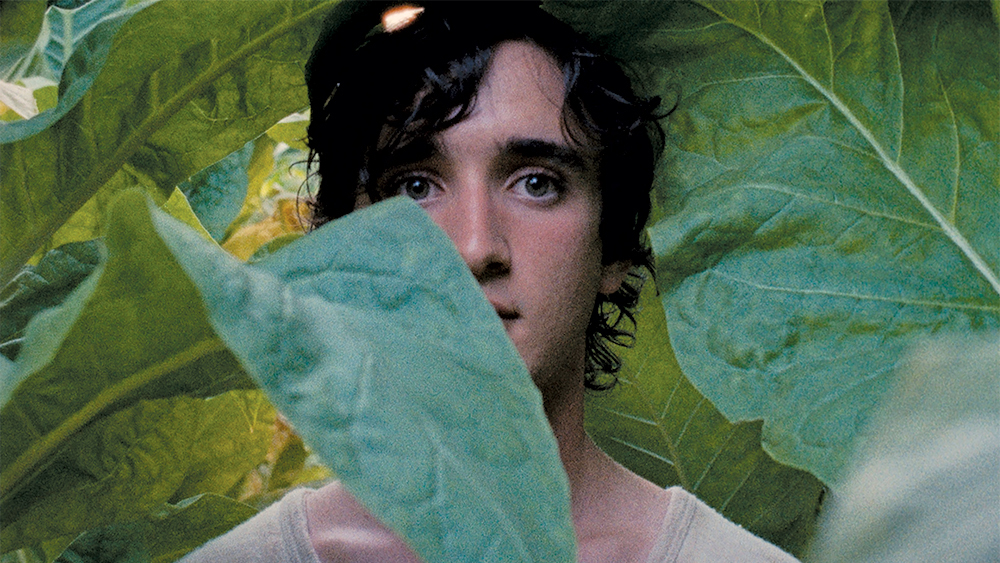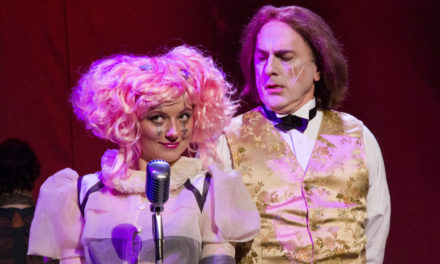Happiness is a simple feeling that can be difficult to explain — it manifests as something different for everyone, despite our shared understanding of the emotion. In Italian filmmaker Alice Rohrwacher’s “Happy as Lazzaro,” the titular character’s contentment stems from a genuine acceptance and appreciation for his surroundings that is imbued with an unspoken desire to do well by others. While Netflix’s new original film may not feel as though it has some grand insight into the nature of happiness, it is certainly a well-made, tranquil, contemplative tale reminding viewers of how happiness fits into modern society.
Lazzaro (Adriano Tardolio) works on a tobacco farm in Italy. Though the farm doesn’t exude the beauty brought to mind when thinking of the Italian countryside — and the people around him are mired in debt and only find occasional pleasure when free from work — Lazzaro seems quietly satisfied with his life. He is eager to do what others ask of him and often stares into space when he has nothing to do. When the farm’s ironfisted owner comes to visit, her son Tancredi (Luca Chikovani) decides to run away into the wilderness around the farmland, where he convinces Lazzaro to help him fake his own kidnapping.
The film explores themes of happiness and idealism through Lazzaro and Tancredi’s friendship. As the two amble about the farmland, the camera captures the beauty the duo sees in their strange world. Lazzaro’s simple acceptance of his life circumstances plays well off Tancredi’s imaginative and rebellious nature, building a relationship that makes the film pleasant to watch. Their dynamic also highlights the difference between Lazzaro’s trusting and jovial perspective and that of modern society when the two meet each other in the city many years later. Tancredi treats Lazzaro as an equal while everyone else, the other farm workers included, take advantage of Lazzaro’s desire to be helpful. This lends the film’s narrative a little more originality and depth — it could easily have fallen into the trope of a typical happy countryside versus miserable metropolis fable.
Despite the rather simple camerawork throughout the film, the shots are often visually intriguing. The mise-en-scene of the farmland makes it feel like a place lost in time, which contrasts well with the spiderweb wires of the cold cityscape later in the film. Lazzaro himself is often filmed from far away, which makes him seem more like a part of nature, fundamentally distant from the average individual. These shots also highlight the importance of moments when we are allowed to see Lazzaro up close. The simple and naturalistic nature of the cinematography create some issues for the film, though.
Because the film seems so eager to construct its musings on happiness in an understated and natural manner, the film’s few stylistic eccentricities can feel like they either add a splash of magic into the story or oddly out of place. And while Tardolio’s performance as Lazzaro is well-executed, the character, in his too-pure-for-this-world role, is inherently more sympathetic than relatable. This makes the film more focused on framing its social critique through society’s abuses of Lazzaro, rather than an exploration of his character. The film also struggles to make a clear distinction between Lazarro’s bliss and his seeming (or sometimes blatant) ignorance of the modern world around him, which can muddle the more original aspects of the film’s message with cliched sentiments.
While the film may not offer much originality as a subtly tragic fable, the presentation of the material and the likability of the main character make the film engaging enough. The film is a little slow, but its relaxed pace is well-earned. It allows the audience to feel closer to Lazzaro as he ambles through his dreamlike adventure. “Happy as Lazarro” is a charming piece that is well worth a watch (or two).
Grade: B
Rhett Hipp (22C) is from Winter Park, Florida, majoring in film and media studies, creative writing and Japanese language and culture. Along with writing for the Wheel, Hipp is the current vice president of Emory’s Japanese Cultural Club. He reviews films, games and anime. Contact Hipp at rhett.hipp@emory.edu.






